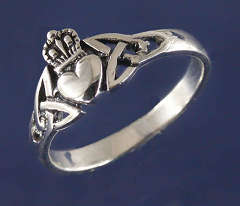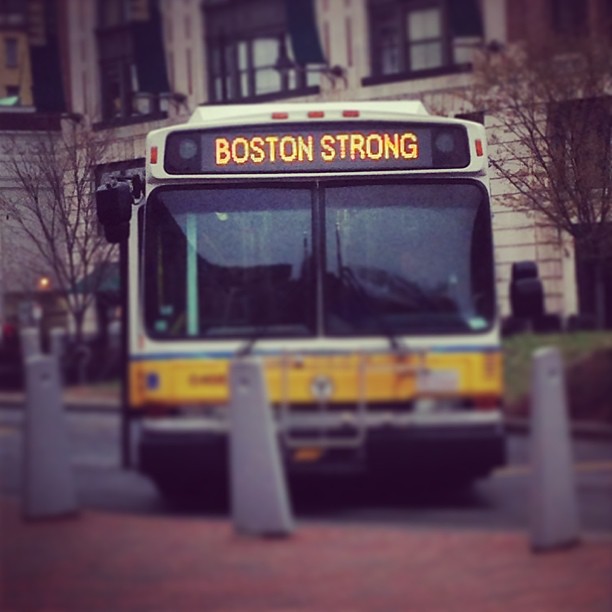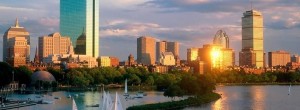I’ve been thinking a lot about the Trinity this summer, especially after reading Forrest Church’s The Cathedral of the World, a moving and beautiful book on Unitarian Universalist theology.
One of the reasons I was first drawn to Unitarianism was the whole unity part. God is one. After a childhood growing up Baptist and Catholic, I was more than a little weary of high Christology.
I had been asked since I was small if I believed “Jesus had died for my sins” and if he was “my personal savior.” I’d been fed the images of Jesus on the cross, Jesus with the stigmata, even Rapture Jesus (yes, the Baptist youth group has us read the Left Behind for Kids series).
I’d parroted the lines of the catechism, read the Nicene Creed aloud at Mass in harmony with all the other voices. But I couldn’t believe it.
I couldn’t believe that Jesus had died and risen.
I couldn’t believe in a God who needed to sacrifice his son (Which, by the way, where did that son come from? I could never get a straight answer from my Sunday school teachers about whether he’d always existed, or had been born, or whatnot. It wasn’t until I started studying religion at BU that I realized it was a controversy that had rocked the church over the ages, from Arius to Jefferson) for the sins of human people.
* * *
One of my most fruitful conversations with an evangelical happened at a conference that had nothing to do with religion. It was about the Millennial Generation, and he and I were both students who had won fellowships to be there. We got to talking about religion when he heard my major.
He was very interested in learning about Unitarian Universalism, but had to admit the comfort that he found in his own tradition, saying, The feeling of being so loved that God sent down his own son as a sacrifice for my sins–for me–is what brought me to Christianity.
It’s a beautiful story, I replied. I see why it’s meaningful to you.
What drew you away from it?
I wanted to believe it. I wish I could believe it. But I just…couldn’t.
He looked at me and nodded, a look of sad understanding in his eyes.
* * *
I once read a blog post by a Unitarian Universalist complaining about how people say that “UUs believe whatever they want.” He argued, “That’s not the problem. If we believed whatever we wanted to, most of us would still be in the traditions we were raised in. Many of us are UU because we couldn’t believe in them, much as we wanted to.”
I think that’s accurate, at least for me. I love the drama of the Christian story. I love the structure and the mythos and the literary richness of it. I love the meaningful and symbolism-soaked holidays and rituals.
But that darn Trinity. Much as I wanted to, I couldn’t embrace it.
I could say that I believe Jesus was a great spiritual teacher, a model for leading a Godly life. I could say that I believe he was a son of God in the way that we are all children of God, with a divine spark within us. I could even say that, yes, maybe he had a special connection with the divine that not all of us (but some other figures throughout human history) have achieved.
But I could not elevate him to being on par (“consubstantial,” as the revised Nicene Creed puts it) with God. I could not believe in a bodily resurrection.
Then I read Forrest Church. And he introduced me to a new perspective on the resurrection, and on the Trinity.
Church views the story of the resurrection as a metaphorical testament to the power of love over death. I won’t copy his whole chapter on it here (though it is genius), but in sum, he is saying that Jesus was a model of love, and that even after his death, his teachings of love lived on and spread. And so it is for us–when we die, we leave our bodies and our earthly lives behind, but our legacy of love continues on and keeps touching others.
As for that darn Trinity, Church looks at it in a different light. He sees the three elements as the three different ways that God is embodied in our lives–God above, God among us, and God within us. The presence of God throughout the universe, the presence of God in those around us, and the presence of God inside ourselves. Father, Son, & Holy Ghost.
* * *
This year for my birthday, my boyfriend gave me a Claddagh ring. Traditionally in my Irish family, the parents give their daughter this quintessentially Irish ring, but I had unfortunately lost the ring my parents had given me in a particular choppy sea a few weeks earlier.
A traditional Claddagh ring has two hands (symbolizing friendship) holding a heart (standing for love) with a crown on it (for loyalty). However, Evan picked out one for me that he thought was slightly prettier, with Celtic knots on each side instead of hands.
He, of course, did not know that the knots were Trinity knots, and that he had purchased another traditional iteration of the Claddagh ring, where the Trinity knots holding the heart symbolize the friendship of God.
I wear the ring every day, and I’ve joked about it with some friends–the Unitarian wearing a Trinitarian ring. But when I look at it now, it doesn’t fill me with the same discomfort that thinking about the Trinity once did.
Now, it is a reminder of the constant presence of God–in the world, in my fellow beings, and in my own heart.


